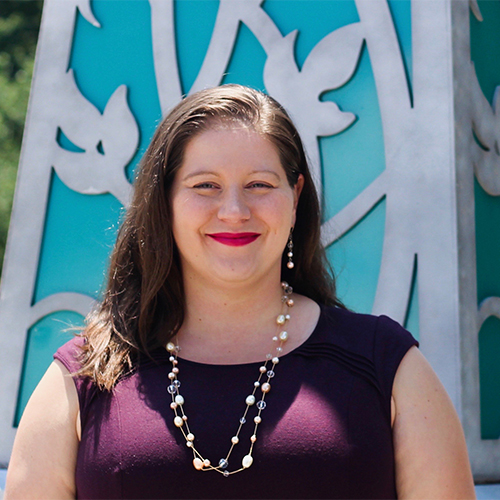Rebekah Fitzsimmons
Assistant Teaching Professor of Professional Communication
Dr. Rebekah Fitzsimmons is an Assistant Teaching Professor of Professional Communication in the Heinz College of Information Systems and Public Policy at Carnegie Mellon University.
Dr. Fitzsimmons currently teaches graduate level core communication courses (Strategic Presentation Skills, Writing for Public Policy, Professional Communication, Writing for Information Systems Management) at Heinz. Her pedagogical approach focuses on innovative use of digital technologies in the classroom, as well as helping experts translate and transmit highly technical knowledge to non-experts through storytelling and multimodal communication.
Dr. Fitzsimmons is the co-editor of the collection Beyond the Blockbusters: Themes and Trends in Contemporary YA (2020). She has published articles in Children’s Literature, Lion and the Unicorn, the Journal of Interactive Technology and Pedagogy and the Journal of the Fantastic in the Arts. Her work also appears in the edited collections The Early Reader in Children’s Literature and Culture and the Prizing Children’s Literature Collection. She currently serves on the Membership Committee for the Children’s Literature Association.
Prior to joining Heinz, Dr. Fitzsimmons was the Assistant Director of the Writing and Communication Program (2018-2019) and a Marion L. Brittain Fellow (2015-2019) in the school of Literature, Media, and Communication at the Georgia Institute of Technology. There, she earned a certificate in Digital Pedagogy and won the WCP’s 2019 Award for Excellence in Pedagogy.
Dr. Fitzsimmons holds a PhD in English from the University of Florida with a concentration in children’s and young adult literature and culture. Her research interests include young adult fiction, digital humanities, speculative fiction, the process of canon formation, and bestseller lists. Her current book project A Woman’s Place: Expertise, Canon Formation, and the Professionalization of Children’s Literature, traces the development of children’s librarianship, children’s publishing, teaching, and children’s literature scholarship from the 1880s to the present day. Her current digital humanities project uses stylometrics (computer-assisted analysis of linguistic style), network analysis, and data visualizations to examine Caroline Hewins’s 1882 pamphlet “Books for the Young,” which is often cited as the first canon-forming document of the children’s literature field.
